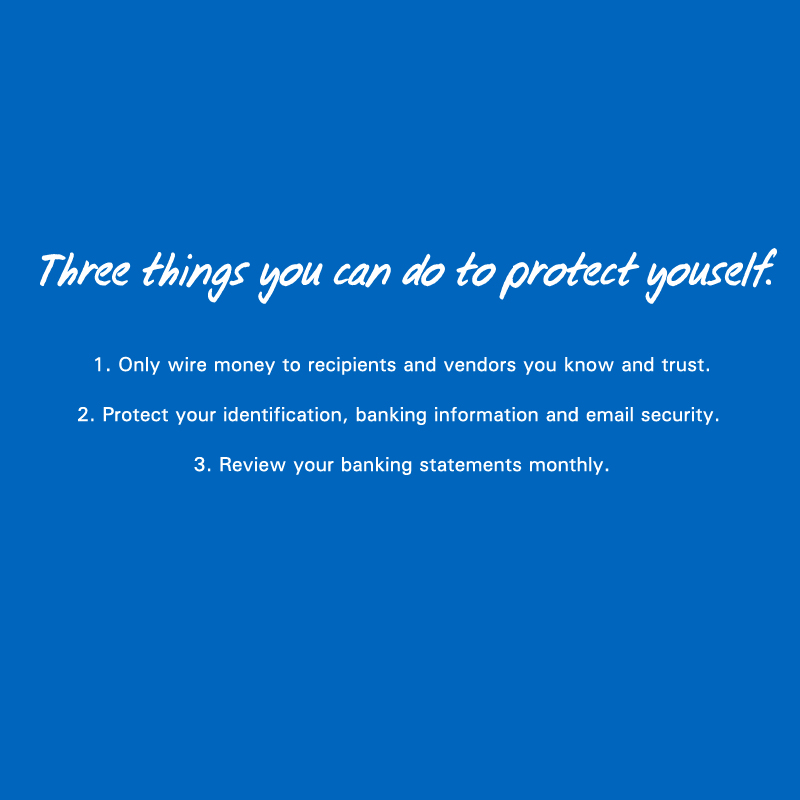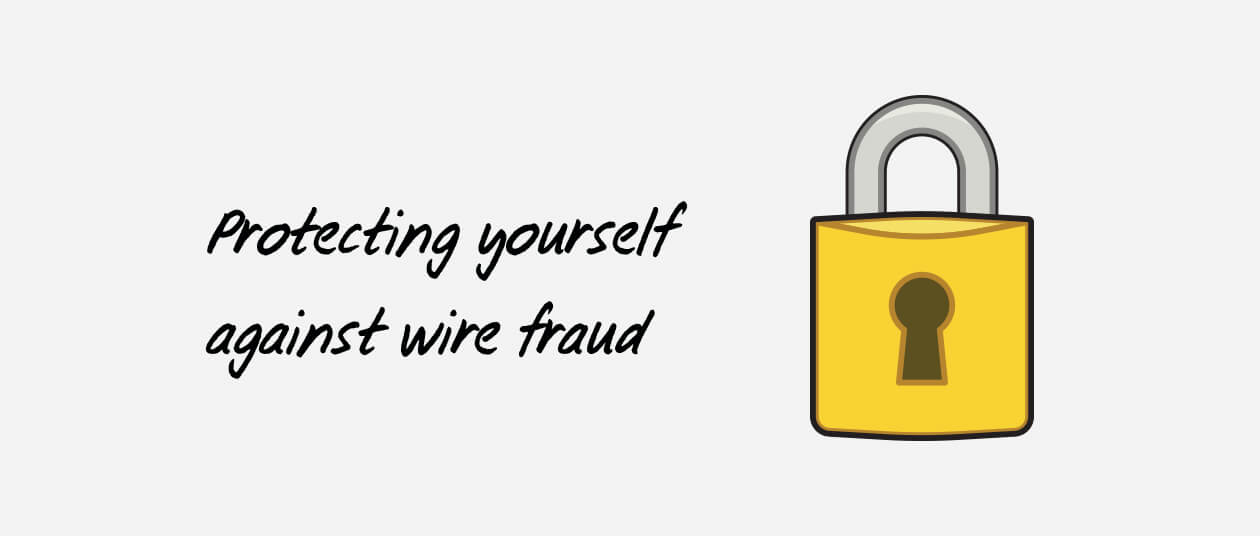You may think it could never happen to you. You know you need to shield your PIN when you use your debit card and you make sure to regularly change your online banking password. You don’t fall for those suspicious texts asking for your personal information either. But there are a number of other types of fraud that could happen to you that you may not have heard of – including something called wire fraud.
Ever heard of wire fraud?
Wire fraud comes in two forms. One type is where you authorize a wire to a fraudulent recipient or a vendor – like an online job posting or even an offer to act as middleman for an international client.
Another type is a fraudster who impersonates you and wires out funds in your name and from your account.
With wire fraud, once you wire out the funds, they are gone from your account. But there are some things you can do to protect yourself.
What you need to look out for.
Some red flags to look out for include deals for goods and services (like electronics, real estate, foreign currency and investments) that are simply too good to be true. Trust your gut.
Only send funds to trusted recipients and people you truly know. Think before you send that wire. If you have a suspicion, reach out to your financial institution before you hit send. They are here to help you.
Another red flag is if the fraudster includes a humanitarian appeal (their plea tugs at your heart strings) and a sense of urgency.

Businesses can fall victim too.
Businesses can be targeted through something called ‘Business Email Compromise’ or BEC. This happens when a fraudster fakes an official looking email which appears to be from a senior executive at the company. This email will direct a lower level employee to wire funds to the fraudster. Usually the email will emphasize the importance, urgency and critical opportunity this transaction represents. But it’s a scam.
What can individuals and businesses do if they suspect this has happened to them?
You should contact your financial institution and your local police or RCMP immediately. Here at Coast Capital, we take this very seriously and will work you and local law enforcement.
Businesses should also consider their own internal policies and controls over email and document security.
Do you need an updated company policy? Businesses should talk with their team about the risks of BEC and what that would look like at your company.
March is Fraud Prevention Month.
It’s the 13th annual Fraud Prevention Month and the Competition Bureau has some helpful tips on how to protect yourself.
Remember, one of the best defenses against fraud is your instincts and education.
If something feels off, it probably is. One of the best ways to protect yourself is through education. Check out Coast Capital’s security resources for more help.



